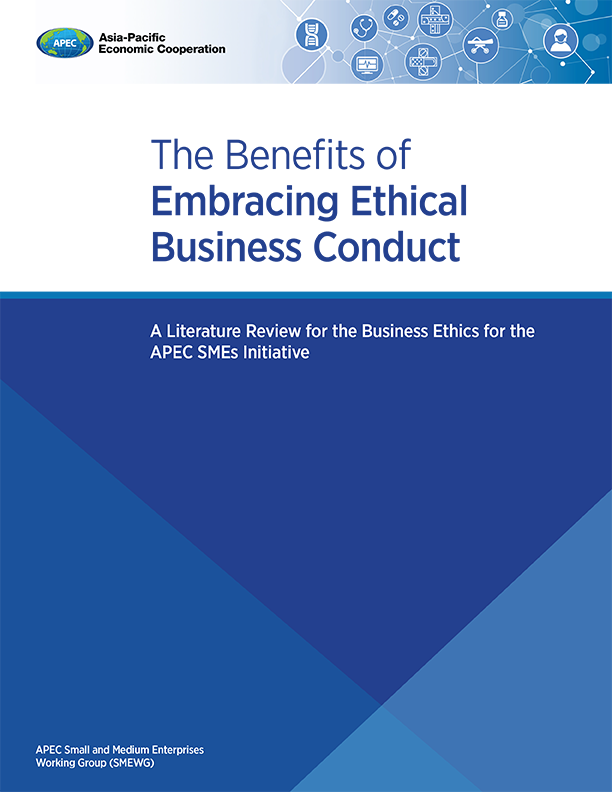
A Literature Review for the Business Ethics for the APEC SMEs Initiative
Common wisdom and ample evidence demonstrate the negative impact that corruption has on public welfare and economies. The World Bank and International Monetary Fund (IMF) estimate that the global cost of corruption exceeds $2 trillion annually (IMF 2016; Kaufmann 2005). For governments, studies suggest that corruption leads to lower levels of business investment and economic growth, increased levels of inequality, and substantial losses in tax revenue—equating to 4% of the gross domestic product (GDP)—compared with similar societies with low levels of corruption (Mauro 1995).
Understanding the costs of corruption alone may not provide sufficient motivation to alter the behavior of companies or individuals. This literature review covers published work on the cost of unethical conduct in tandem with scholarly insights on gains from adopting ethical practices at the firm level, providing a compelling foundation for action that has thus far not been available. Guided by consultation with experts in the field of business ethics and drawing from published research from academia and multilateral organizations, this collection of literature demonstrates that enterprises worldwide, especially small to medium enterprises (SMEs), stand not only to avoid harm but also to tangibly benefit from embracing ethical practices.
This literature review proceeds as follows:
- The first section assesses the impact of corruption and unethical conduct on businesses, namely SMEs, including business performance, access to financing, and reputation;
- The second section presents evidence at the individual firm level on the positive impacts of embracing ethical businesses practices; and
- The third section highlights several avenues of inquiry by which researchers may further advance our understanding of the positive impact of ethical business conduct in the future, particularly for SMEs.
Please find the full literature review here.
